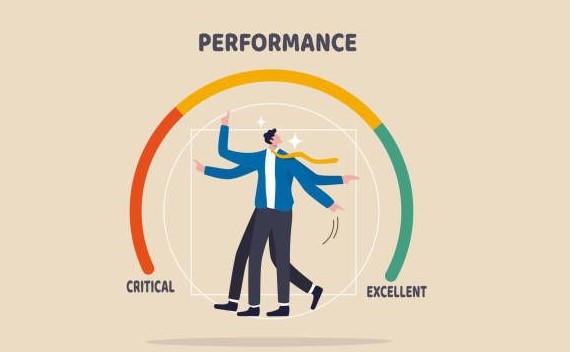The literature review is a cornerstone of academic and professional research. Whether you’re a student working on a thesis or a seasoned professional contributing to a new field, the ability to synthesize existing knowledge is crucial. A well-crafted literature review isn’t just a summary of previous work; it’s a critical analysis that sets the stage for your own contributions. But how do you move beyond simply listing sources to creating a truly powerful and insightful piece? This guide will walk you through the process.
Understanding the Purpose
Before you even begin to write a literature review, it’s essential to understand its purpose. It’s not about demonstrating that you’ve read a lot; it’s about:
- Establishing Context: A literature review provides the reader with the necessary background information on your topic.
- Identifying Gaps: It highlights what is already known and, more importantly, what remains unknown or needs further investigation.
- Justifying Your Research: By demonstrating the existing knowledge base and identifying gaps, you can justify the need for your research or project.
- Demonstrating Scholarly Depth: A comprehensive and critical review showcases your understanding of the relevant literature and your ability to engage with it thoughtfully.
Planning Your Literature Review
Effective literature reviews are not crafted randomly. Careful planning is essential for success.
- Define Your Scope: What specific area are you exploring? What are the boundaries of your topic? Clearly defining your focus will prevent you from getting overwhelmed by the sheer volume of information.
- Develop Research Questions: What specific questions will guide your search for relevant literature? These questions should align with the broader aims of your research or project.
- Identify Keywords and Databases: Brainstorm keywords and search terms related to your topic. Familiarize yourself with relevant academic databases and library resources.
- Set Search Parameters: Specify search parameters like date ranges, publication types (e.g., journal articles, books, conference papers), and specific authors or institutions to narrow down your search.
Searching and Selecting Literature
Once you have your plan, it’s time to delve into the literature.
- Be Systematic: Don’t just search for the first articles that pop up. Use a systematic approach to ensure you’re not missing key contributions.
- Critically Evaluate Sources: Not all sources are created equal. Evaluate the credibility, methodology, and relevance of each piece of literature. Look for evidence of bias or limitations.
- Take Detailed Notes: Don’t just skim through articles. Read carefully and take detailed notes, noting key arguments, methodologies, findings, and gaps.
- Organize Your Findings: Create a system for organizing your notes, either through a software program or a carefully organized folder system.
Writing Your Literature Review
Now that you’ve done the research, it’s time to write a literature review. Here’s what to keep in mind:
- Create a Structure: A literature review shouldn’t be just a list of summaries. Organize your review logically, often thematically or chronologically.
- Synthesize, Don’t Just Summarize: Instead of simply repeating what you’ve read, look for connections, patterns, and conflicts. How do different authors approach the same issue? Where do their arguments converge or diverge?
- Use a Critical Voice: Don’t be afraid to express your own opinion, but be sure to ground it in evidence. Point out the strengths and weaknesses of existing research.
- Maintain a Professional Tone: Use clear and concise language. Avoid jargon or overly complex sentence structures. Ensure your writing is objective and scholarly.
- Make the Connections Clear: Always make the relevance of a study clear to your overall theme or research questions. Do not assume the reader will understand the connection without you stating it.
Common Pitfalls to Avoid
- Descriptive, not Analytical: Failing to move beyond basic summary and engage critically with the literature is a major weakness.
- Poor Organization: A disorganized literature review can be difficult to follow and makes it harder to understand your argument.
- Insufficient Scope: If the review doesn’t adequately represent the body of knowledge on a topic, it can undermine your credibility.
- Relying on Second-Hand Sources: Always strive to read original research articles rather than relying solely on secondary interpretations.
When You Need Extra Help
Sometimes, despite our best efforts, literature review writing can feel overwhelming. If you find yourself struggling, consider seeking guidance. While it’s always best to tackle the bulk of the work on your own, you may feel that you need a literature review writer, or want to find support to work through the writing. Many resources are available to support you in your academic journey, or even in a professional context.
Don’t hesitate to explore options like tutoring, writing centers, or even feedback from a trusted colleague. It’s often the process of talking through ideas that can help you organize your thoughts and improve your writing skills. Remember, asking for help is a sign of strength, not weakness. It also does not replace your own work; learning to write a literature review is a key skill you will use over and over again.
The Bottom Line
Writing a powerful literature review is a challenging but rewarding endeavor. By carefully planning, critically engaging with sources, and writing analytically, you can create a piece that demonstrates your depth of understanding and contributes meaningfully to the body of knowledge in your field. Remember, it’s not just about summarizing what you’ve read but about demonstrating your ability to think critically about it and use it to build your own unique argument.




